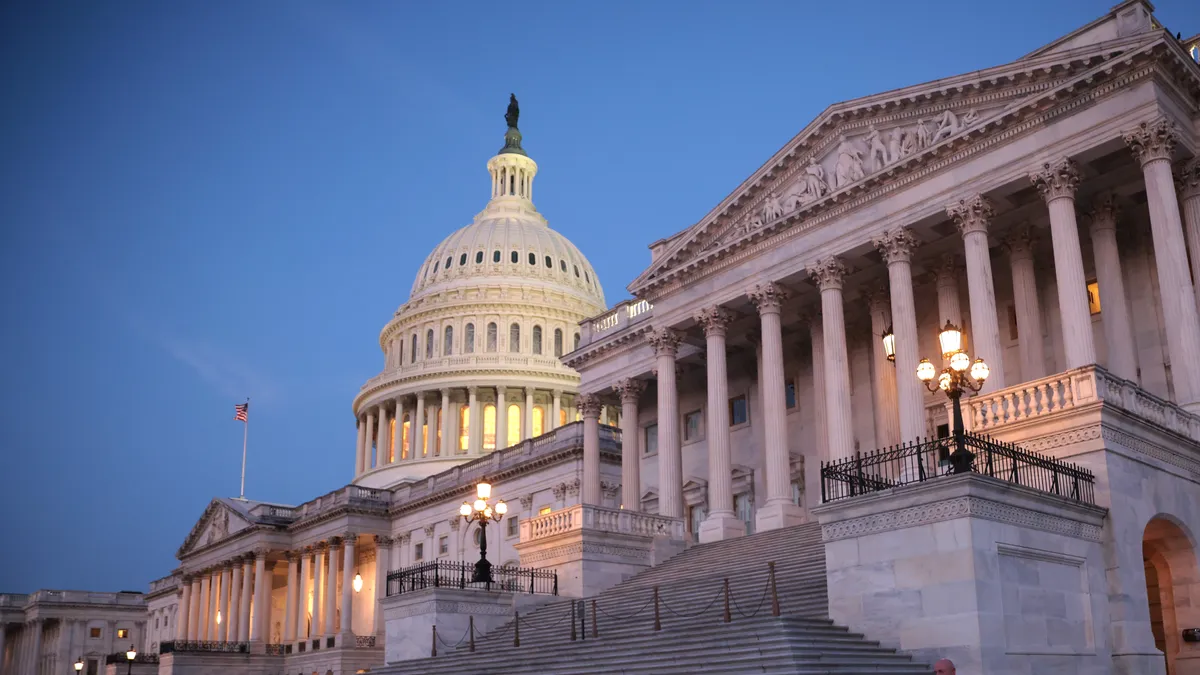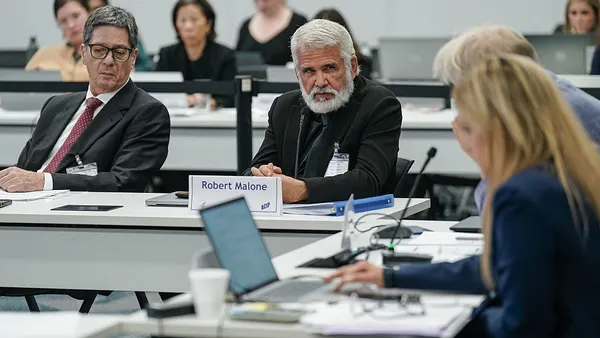Dive Brief:
- A House of Representatives committee has advanced a bill that would give eligible breakthrough devices four years of Medicare coverage.
- The House Ways and Means Committee debated the bill Wednesday, revealing concerns about the risk of fraud, the type of evidence required and the weakening of the Centers for Medicare and Medicaid Services’ authority.
- Despite the concerns, the bill received bipartisan support and was passed in a 38 to 3 vote. Two medtech trade groups welcomed progress on a topic that they have lobbied about for years.
Dive Insight:
The CMS rescinded a program for granting Medicare coverage to breakthrough devices in 2021. Since then, medtech trade groups have continued to call for the implementation of new ways to reduce the lag between the approval and reimbursement of breakthrough medical devices. Lawmakers have proposed bills designed to achieve that goal but have yet to pass legislation.
Rep. Blake Moore, R-Utah, introduced the latest attempt to require CMS to cover breakthrough devices this week. Moore presented the bill and explained how it builds on earlier proposals at the House Ways and Means Committee debate.
“Our bill creates a streamlined pathway for temporary Medicare coverage of FDA-designated breakthrough devices while ensuring that safety and efficacy are not compromised,” Moore said. “This bill strikes the balance between previous proposals by allowing manufacturers to participate in a voluntary application process that reduces duplicative reviews at CMS that delay patient access.”
Rep. Lloyd Doggett, D-Texas, was among the committee members to question whether the bill strikes the right balance. Fearing that the legislation could “weaken CMS authority,” Doggett posed a series of questions to Patrick Dumas, staff director of the subcommittee on health. Doggett was unhappy with the answers.
“We are risking a substantial amount of fraud here. What the rush is to get this through without making the changes and adopting them in the committee I don't understand and I've gotten no explanation of it today,” Doggett said. “I will save further remarks for striking the last word, but I'm troubled by your answers and your refusal to answer a number of my questions.”
Moore acknowledged the fraud risk when introducing the bill, telling the committee that he planned to continue working with Rep. Suzan DelBene, D-Wash., to ensure “there is no abuse of this pathway.” The addition of diagnostics is the other item that Moore said he plans to work on with DelBene.
Trade group AdvaMed called for the inclusion of diagnostics in the bill in a statement welcoming the committee’s work on the legislation. The Medical Device Manufacturers Association also welcomed the committee’s vote in favor of the bill.
Large sections of the bill are the same as legislation that the committee worked on in 2023 and 2024. New information in the latest bill includes a section about reviewing the medical necessity and reasonableness of a breakthrough device to address “aberrant billing.”












